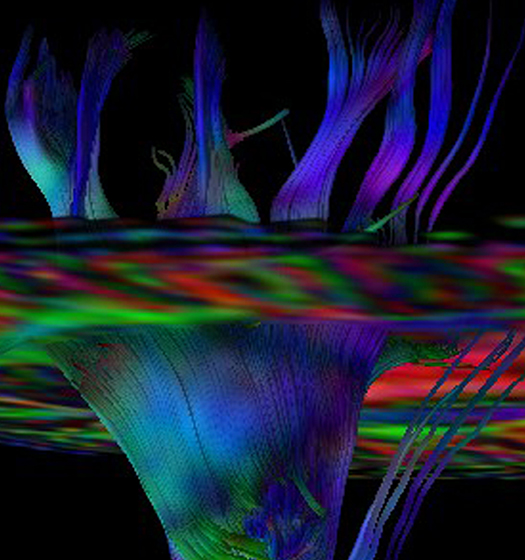The Neuro
Revolutionizing neuroscience. Transforming lives.
More than 100 million people around the world suffer from a disease or disorder of the brain – and the number is increasing.
To meet this global challenge, we not only have to do more and do better; we need to radically transform our approach to brain science.
Led by the Montreal Neurological Institute-Hospital (The Neuro), McGill is revolutionizing brain research in order to accelerate the discovery of new treatments and cures. Our strategy: Open Science.
As the first and still the only Open Science institution in the world, The Neuro is developing the tools and the infrastructure needed to support data and material sharing with the research community worldwide.
Bringing together expertise from across health and basic science disciplines. Working hand-in-hand with patients and their families. Sharing our research with a global community, and encouraging scientists worldwide to embrace this new way of doing research. Expanding the impact of our research – and growing scientific knowledge to deliver new treatments.
Our bold strategy has the promise to change how the world’s researchers advance neuroscience, and better capitalize on innovations in biomedical science and big data technology.
Driven by a pioneering vision and fueled by philanthropy, together we have the power to change millions of lives.
Discover our vision for the future
Accelerating discovery to treat patients with neurological disease
With patients at the centre of our motivation, and driven by Open Science principles and transformative technology, we aim to accelerate innovation, discovery and improve care in four critical disease areas:
- Neurodegenerative diseases: Parkinson’s disease, ALS and other movement disorders are among the most prevalent and fastest-growing neurodegenerative conditions.
- Neurodevelopmental disorders: Neurodevelopmental disorders include autism spectrum disorder (ASD), intellectual or learning disabilities, attention-deficit/hyperactivity disorder (ADHD), epilepsy, cerebral palsy and schizophrenia. They affect more children than any other childhood disability: an estimated one in six in the world.
- Brain tumours: Brain tumours affect people of all ages. They are the leading cause of solid cancer death in children under the age of 20, and the third leading cause of solid cancer death in young adults, ages 20 to 39.
- Rare neurological diseases: As patients and family members deal with the overwhelming challenges of rare neurological diseases like spastic paraplegia, ARSACS, and ataxias, they face a dual burden: the disease itself, and the knowledge that most research funding and drug discovery efforts focus on more common ailments.


Leading the way to a new era of science through Open Science
- In 2016, The Neuro became the first research institute in the world to adopt Open Science as an operating principle. This no-barrier approach to scientific research is gaining ground within the academic community. Read more ...
-
It promises to accelerate research, improve the quality of results, and reinvent discovery itself. We want to accelerate the discovery of novel therapeutics to treat patients suffering from neurological disease through our Open Science initiatives and the latest in brain imaging technology:
- An Open Neurological Diseases Repository: A game-changing, open biobank collection that we will share with our research partners in order to feed the discovery of biomarkers to improve diagnosis, accelerate drug development and open up new areas of research.
- A unique Open Early-Drug-Discovery Unit: Our unique early-drug-discovery unit removes proprietary barriers that prevent institutions from sharing early-stage data, allowing research partners to identify and test drug targets collaboratively, and collaborate with pharmaceuticals to develop new drugs. This will result in new drugs moving more quickly to clinical trials, and ultimately, in better therapies for patients.
- A robust Open Data-Analytics and Data-Sharing Platform: Scientists at The Neuro have been pioneering neuroinformatics platforms since the early 1990s. We will integrate, analyze and share neuroscience data safely and usably with our researcher partners via sophisticated software and a special infrastructure developed by our neuroinformatics experts.
- A world-leading Open Multi-modal Brain Imaging Centre: For more than 30 years, our McConnell Brain Imaging Centre has led the world in state-of-the-art imaging technologies. In 2019, we took the next step, creating a Centre for Ultra-High-Field Brain Imaging, which includes Canada’s first whole body 7T MRI scanner. By further enhancing our imaging capability and integrating it into our multi-disciplinary research, we will better understand the development of the mechanisms of disease, give more precise diagnostics, and advance the testing of potential drugs.
- An Open Neurological Diseases Repository: A game-changing, open biobank collection that we will share with our research partners in order to feed the discovery of biomarkers to improve diagnosis, accelerate drug development and open up new areas of research.
Explore by story
New treatments for neurological disease. Made by researchers like Nguyen-Vi Mohamed.
Watch the video





